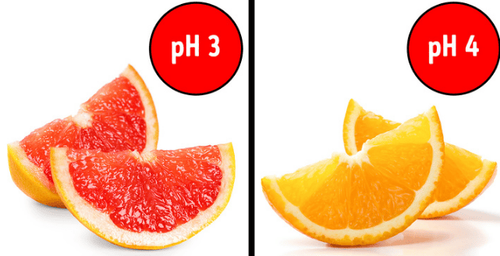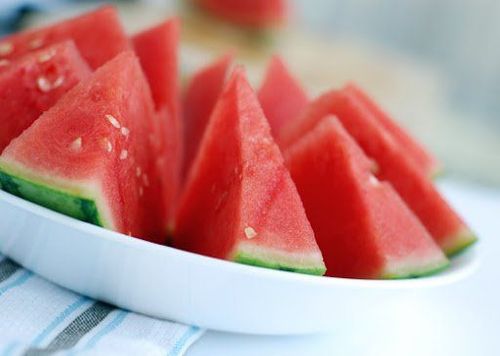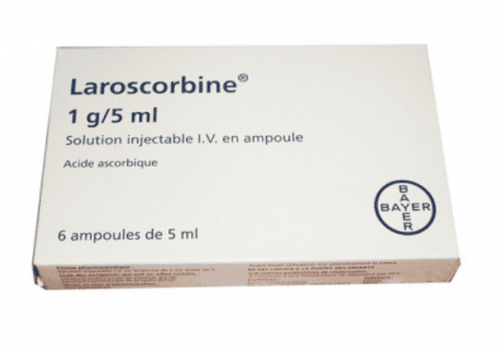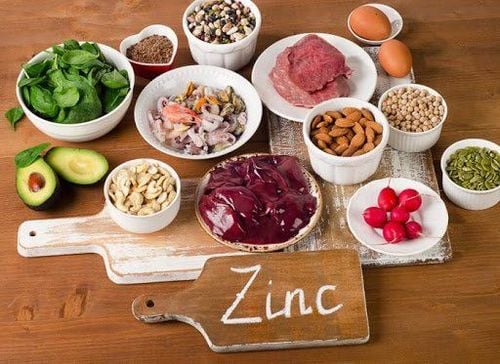This article is professionally consulted by Ho Thi Hong Tho, RMO - Pediatrician - Neonatal Department - Vinmec Phu Quoc International General Hospital
Oranges are a fruit characterized by their sweet and tangy flavor, and they are also considered beneficial for health, particularly in young children. Therefore, at what age can children be introduced to oranges? Moreover, which methods should be employed to integrate oranges into a child's diet in a reasonable manner while maximizing health benefits?
1. Timing for Introducing Oranges to Children
Many mothers ask, "Can a 7-month-old eat oranges or can a 6-month-old eat oranges?"
Infants who can chew or masticate well can begin to consume oranges after they reach six months of age. Additionally, they may also eat other citrus fruits, such as pomelos and mandarins. When parents introduce these types of fruit, juice preparations are advisable. Larger segments of citrus fruits may appear soft and easy to chew, but they tend to be slippery and may pose a choking hazard for infants.
It is worth noting that after introducing any new food to a child, one should wait at least three days before proceeding to the next new food. This allows monitoring for any adverse reactions to the food in the child's system, making it easier to identify any underlying causes of such reactions. Beyond allergic reactions, citrus fruits can exacerbate gastroesophageal reflux and may lead to diaper dermatitis.

2. Some Health Benefits of Oranges for Young Children
Is it beneficial for children to eat oranges? Below are several advantages of including oranges in a child's diet:
2.1 Nutritional Composition of Oranges
Oranges are rich in various nutrients, including minerals and vitamins. For infants and young children, these nutritional components are essential for their early developmental years.
If a child experiences challenges in their physical development, offering orange juice may supplement necessary vitamins and minerals to improve nutritional intake.

2.2 Support for Digestive Health
Nearly all infants and young children encounter frequent instances of indigestion. This is primarily due to their digestive system still maturing. The components of an orange are beneficial as they stimulate digestion and alleviate constipation in children.
2.3 Bone Health
With its abundant mineral and salt content, oranges serve as excellent supplements for essential elements such as calcium and phosphate. Regular consumption of oranges can help prevent bone weakness and joint laxity, conditions arising from deficiencies of these minerals, known as rickets.

2.4 Alleviation of Coughs, Whooping Cough, and Colds
Coughs and colds are common symptoms when children are ill. An effective home remedy is to mix orange juice with a little salt and honey, then steam it for the child to consume. This has been recognized as an excellent treatment for common colds and coughs.
2.5 Therapeutic Approach to Mumps
Although mumps is typically observed more frequently in older children, a common method for treatment involves consuming orange juice, supplemented by various fruit juices. Combining them with a bit of warm water can provide a gentle flavor for the child.

2.6 Support in Recovering from Typhoid Fever
Typhoid fever is known to disrupt a person’s digestive process, leading to severe abdominal pain, cough, headaches, and fever. Since the stomach can only digest fruit juices and fluids, orange juice can assist in the recovery process and is one of the best options to offer to children suffering from typhoid fever.
3. Considerations Regarding Oranges
3.1 Acidity
Citrus fruits possess acidic properties, meaning that their metabolism generates acid. While an adult's stomach can handle the acidity of oranges, infants and young children have more sensitive stomachs and may react negatively to high acidity levels.
If oranges are introduced too early, the acidity may lead to diaper rashes and redness around the mouth. This does not necessarily indicate an allergy to the fruit. The acidity may also cause stomach discomfort or exacerbate acid reflux symptoms.

3.2 Citrus Membrane
One of the challenges when introducing oranges to children is the citrus membrane. This may present a choking hazard. It is advisable to cut each segment into smaller pieces or to peel the membrane before offering it to the child.
3.3 Sources of Vitamin C
There is no need for excessive concern regarding vitamin C intake if your child does not consume oranges, as young children require only approximately 35 mg of vitamin C daily. This essential nutrient can be derived from various other fruits and vegetables, including:
- Sweet potatoes
- Watermelon
- Strawberries
- Peas
- Papaya
- Kale

4. Strategies for Incorporating Oranges into a Child's Diet
Many parents question the process of “How do I give my child oranges?” One of the most common methods is to gradually introduce oranges into the child's diet, starting with small quantities.
A few small spoonfuls each day may provide a suitable introduction. However, it is recommended to monitor for any reactions in the subsequent two to three days. Additionally, observe for any redness around the mouth and check for the presence of diaper rashes.
If your child experiences hives, swelling, vomiting, wheezing, or difficulty breathing, seek medical attention immediately. Furthermore, ensure that the orange segments are cut into very small pieces, while also removing any membranes or seeds that could pose a choking risk.
To enhance the flavor of oranges, consider combining them with a variety of other foods, including:
- Avocado: This fruit pairs excellently with the tartness of oranges.
- Sweet potatoes: You may try preparing a soup using sweet potatoes blended with orange juice.
- Chicken: Once your child begins consuming meat, orange zest can serve as a glaze.
- Yogurt: Frozen yogurt made from yogurt with orange flavor is quite palatable.
5. Important Considerations when Offering Orange Juice to Children
5.1 Blending or Pureeing Oranges
If your child continues to have difficulty consuming small orange pieces, even after peeling, fibrous membranes, and seeds, you may consider pureeing the fruit. This method will greatly facilitate consumption and palatability for the child.

5.2 Utilizing Fresh Fruit
Your child should consistently include fresh fruit and naturally ripened alternatives in their daily diet.
In addition to nutritional intake, parents should also ensure that their child receives other essential vitamins and minerals such as zinc, lysine, chromium, B vitamins, etc., which will aid in appetite stimulation, bolster the immune system, and enhance resilience against minor ailments.
References: healthline.com, babycenter.com
To arrange an appointment, please call HOTLINE or make your reservation directly HERE. You may also download the MyVinmec app to schedule appointments faster and manage your reservations more conveniently.
To arrange an appointment, please call HOTLINE or make your reservation directly HERE. You may also download the MyVinmec app to schedule appointments faster and manage your reservations more conveniently.









